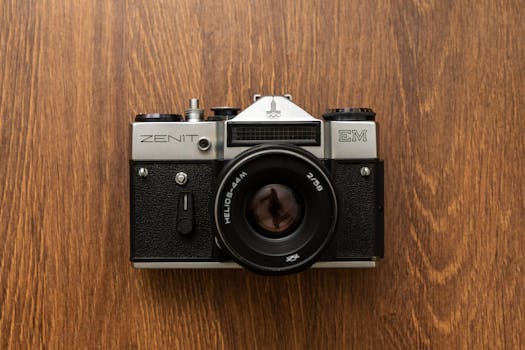Apps
Transform Your Cell Phone: Practical Tips for Organizing Apps
Discover how to organize your mobile apps to improve the efficiency and functionality of your device with simple and practical tips.
Advertisement
Organizing apps on your phone may seem like a simple task, but with the constant increase in downloads, it's common for your phone to become a real mess. This often leads to frustration and even difficulty finding what you really need. However, with a few effective strategies, you can transform your phone screen into a functional and pleasant space.
Good organization not only makes it easier to access the apps you use frequently, but it also helps maximize your device's efficiency. Therefore, exploring methods to group, hide, and delete apps can be extremely beneficial. Furthermore, rethinking how you use each app is essential to optimize its use.
This article offers practical and simple suggestions for organizing your apps to make your mobile experience much more fluid. With a little discipline and the right tips, you'll be able to find everything you need quickly.
1. Rate and Rank Your Apps
The first essential step in organizing your apps is evaluating them. Review all of your installed apps, noting which ones you actually use. This will help you in the next step of organizing.
Separate your apps into categories. For example, work apps, social media, entertainment, and utilities. This significantly reduces the clutter on your home screen.
After categorizing, consider deleting those that are no longer useful. Forgotten apps that haven't been used for months or years only take up space and make navigation difficult. A lighter, more organized phone is always better.
Use a spreadsheet or notepad to record your observations. Visualizing your needs and desires on paper can create a clearer organizational plan. This makes decisions more assertive.
Once you have a clear idea of what you have, organization will begin to flow. Focus on what's truly essential for your daily life and eliminate the rest.
2. Grouping Applications into Folders
An effective way to organize your apps is to group them into folders. You can create folders based on the categories you defined in the previous step. This helps keep your home screen clean and functional.
Folder naming should be straightforward. Options like "Work," "Entertainment," and "Education" should be clear and easily recognizable. This way, you avoid wasting time searching for each app individually.
Remember that folders can be placed on the home screen, making them even easier to access. By reducing the number of visible icons, you minimize unwanted distractions.
Also consider using specific colors or icons for each folder to make organization even more intuitive. This not only helps you find them quickly, but also makes your phone more visually appealing.
Regularity is key. Set aside a few minutes each month to review your folders. Sometimes new apps are installed, and others may become obsolete, requiring category adjustments.
3. Hiding Unnecessary Apps
Most operating systems offer the option to hide apps. This feature is especially useful for those who only use apps sporadically and don't want to see them daily. This helps reduce the visual clutter of the home screen.
You can also improve your concentration by hiding distracting apps. Social media, for example, can be better managed if they're not always visible. Focus is one of the pillars of productivity.
In addition to hiding apps, consider moving some to secondary screens. This way, less-used apps are out of immediate reach, but still available when needed.
Pay attention to your phone's settings. Many devices allow you to customize your home screen and easily hide apps, making the process simple and convenient.
Finally, periodically review hidden apps. Sometimes an app may become more useful over time and need to be moved back to the home screen for easier access.
4. Delete Useless Apps
Storage space is a limited resource on many devices. Therefore, it's essential to delete apps that are no longer useful. This helps keep your phone faster and more efficient.
Check which apps consume the most space. Games or apps with a lot of data can often be major culprits in this regard. Evaluating usage is crucial.
When you decide to delete an app, remember how much space it takes up. Sometimes the feeling of having a "full battery" also comes from the available space. Deleting it can be beneficial.
Get into the habit of reviewing your apps every month and evaluating their usage. This constant review prevents your phone from becoming an "app box" over time.
Also consider uninstalling apps that can be easily accessed through the browser. This reduces the amount of storage space in your memory without losing access to the services.
5. Rethinking Application Usage
Reevaluating how you use your apps is an important step toward organization. Ask yourself: "Does this app really help me in my daily life?" If the answer is no, it might be time to delete or hide it.
Use productivity tools that can bring together multiple services in one place. For example, apps that combine calendar, tasks, and notes can replace several others, making organization easier.
Additionally, set limits on the use of certain apps. This could mean using a timer or simply being disciplined when accessing social media or games.
Look for alternatives to apps that consume a lot of data and space. There are often lighter and more efficient solutions available. This can positively impact your phone's performance.
Finally, always be aware of new features in the services you already use. Apps often update their functions, introducing improvements that can impact the way you work and organize yourself.
6. Maintaining the Organization in the Long Term
Effective organization requires ongoing maintenance. Set aside time weekly or monthly to review your apps. This helps ensure you always have an organized and productive space.
By setting aside specific days or times, organization becomes a habit, not a chore. Success in maintaining your cell phone depends largely on consistency.
This review may include the practices we've already discussed: deleting, grouping, or hiding apps that are no longer useful. Keep your mind open to change.
Add new apps with caution, always researching their functionality and usefulness to avoid unnecessarily overloading your phone. A thorough analysis is always welcome.
Also, pay attention to app updates. Always keep an eye on new features and features they offer. Updates don't always consume space and can improve efficiency.
7. App Ranking Table
| Application | Category | Frequency of Use | Occupied Space | Keep/Delete |
|---|---|---|---|---|
| Communication | Daily | 150 MB | To maintain | |
| Social | Weekly | 200 MB | Eliminate | |
| Spotify | Entertainment | Daily | 300 MB | To maintain |
| Social | Monthly | 50 MB | Eliminate | |
| Google Drive | Productivity | Daily | 100 MB | To maintain |
Conclusion
Organizing your phone's apps can seem challenging, but with simple approaches and a little discipline, this task becomes quick and easy. Evaluating, grouping, hiding, and deleting apps are essential steps to creating a seamless experience.
Each strategy presented can be adjusted to suit your needs. Regular maintenance will ensure your device remains lightweight and functional. So, make it a habit.
Remember, how you use your phone directly impacts your productivity. Take the extra step and rethink the real need for each installed app.
By implementing these tips, you'll not only find it easier to use your phone, but you'll also be able to make the most of the time you spend on it. Good organization is key!
Finally, never stop exploring new tools and alternatives. The world of apps is constantly evolving, and with it, new possibilities for organization and efficiency.




